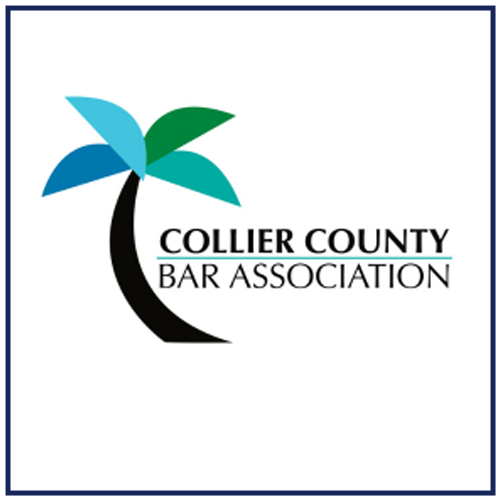
Domestic Violence Attorneys in Naples
Restraining Order Lawyers Working to Protect You & Your Family
Florida courts take domestic violence very seriously. If you are the victim of domestic violence or have been falsely accused of committing an act of domestic violence in Collier County or Lee County, then Family First Legal Group can help.
Our Naples domestic violence lawyers have the resources needed to protect you and your family. Contact us now to get started on your case! We also serve clients in Cape Coral.
Contact us online or at (239) 319-4441 to schedule a consultation with our knowledgeable team in Naples who can discuss your options with you. We also serve clients in Cape Coral.
What Is Domestic Violence?
In Florida, domestic violence has two basic elements. First, there must be an act or a threat to act in a manner that will cause harm to another person.
The acts that are considered to be domestic violence include:
- Sexual battery
- Sexual assault
- Assault
- Aggravated assault
- Battery
- Aggravated battery
- Stalking
- False imprisonment
- Kidnapping
The second element of domestic violence in Florida is that the victim must have a familial relationship or be in the same household with the person engaging in the act of domestic violence.
Relationships that are covered under the domestic violence laws include:
- Spouses and former spouses
- Individuals who have a child together, either while married or unmarried
- People who are related by blood
- People who live together as a family or did so in the past
How To Get a Restraining Order in Florida
Domestic violence victims -- as well as victims of harassment or stalking -- can file for an injunction of protection at the district court in their county. After reviewing the petition to determine if it has merit, a judge will (or will not) issue a temporary restraining order, which lasts for 15 days. A hearing will then be scheduled for a permanent injunction of protection.
Victims of acts of domestic violence can seek protection by filing for a restraining order. This is a legally binding document that requires one individual to stay away from the individual who has applied for the restraining order. Restraining orders are an important means of protecting domestic violence victims from future harm.
Types of Restraining Orders
There are different types of injunctions available in Florida, depending on the relationship of the victim to the perpetrator. Some injunctions are specific to domestic violence while other injunctions cover relationships outside of familial connections.
There are two types of domestic violence injunctions:
- Temporary (Ex Parte) Injunctions: A judge orders a temporary injunction to provide immediate protection from an abuser. Your petition is promptly given to a judge who makes the determination for an order based on the information provided by the victim in the petition. The temporary order is generally in effect for a maximum of 15 days. A temporary order can include temporary custody of children and pets and force the abuser out of the home. A full hearing, where both sides present their case, is scheduled. The judge may then decide to order a final injunction.
- Final Injunctions: The final injunction may provide you with more protections than the temporary injunction did. The abuser can also be ordered to stay away from the petitioner’s work, school, and other locations they frequent. Temporary child support and spousal support might also be granted. Final injunctions are usually in effect for up to one year but can be extended in one-year increments.
There are three types of injunctions for protection that fall outside Florida’s definition of domestic violence:
- Injunction Against Dating Violence: This injunction may be granted if the harm or threat of harm is between two people who are currently or were previously in a continuing and significant romantic relationship within the past six months. Casual and social or business relationships do not qualify for this injunction.
- Injunction Against Repeat Violence: This injunction can be ordered against anyone who has committed at least two acts of violence or stalking against the petitioners or a member of their immediate family. One of the violent acts must have occurred within the last six months of filing the petition.
- Injunction Against Sexual Violence: This injunction can be ordered against someone accused of sexual battery, lewd or lascivious act on someone younger than 16, luring or enticing a child, sexual performance by a child, or any forcible felony involving a sexual act. The incident of violence must have been reported to law enforcement. The petitioner must be cooperating in any criminal proceeding against the abuser. Charges do not have to be filed nor must the respondent be convicted for a judge to order the injunction.
How Long Is a Restraining Order Good for in Florida?
If a petition for a restraining order has merit, then a judge will issue a temporary restraining order until a hearing can be held to determine if a permanent restraining order is necessary. A temporary restraining order lasts for 15 days, while a permanent restraining order is permanent, unless otherwise ordered by a judge.
Is Your Out-Of-State Restraining Order Enforceable in Florida?
An out-of-state restraining order is enforced in Florida if it meets federal requirements for a protection order. An order can be registered in Florida by providing two certified copies to any state sheriff and asking that they enter the order into the state’s injunction registry. While the state registry is available to all Florida law enforcement, it is wise to also make sure the injunction is included in the National Crime Information Center Registry used by law enforcement in the U.S., Canada, and Puerto Rico.
To have provisions like child custody and child support enforced, the order must also be filed in county court. Once the order is recorded in a Florida court, it will be treated the same as a Florida court decision.
For immediate assistance, contact our Naples restraining order lawyer today.


If you have questions about alimony in Florida, our lawyers in Naples & Cape Coral have the answers you need. Contact Family First Legal Group today at (239) 319-4441.






.2411191155153.jpg)


245.2004211408550.png)




24.2102011044550.png)
